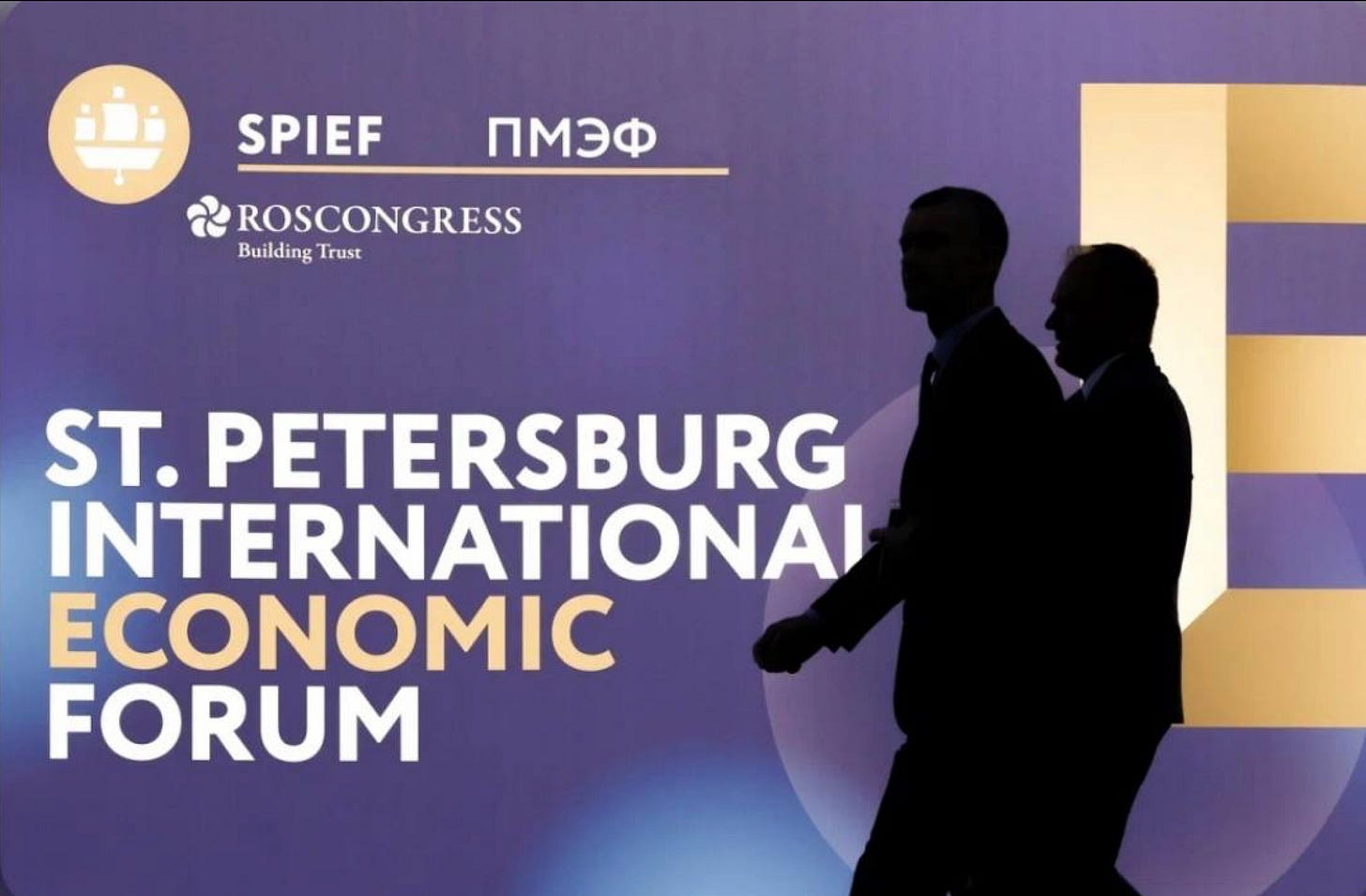From June 18–21, global political and business leaders will gather in St. Petersburg for Russia’s flagship economic event — the St. Petersburg International Economic Forum (SPIEF). While Western sanctions continue to limit participation from Europe and North America, SPIEF remains a vital platform for emerging markets, and its outcomes may have ripple effects for Australian businesses tracking Eurasian trends.
This year’s SPIEF will spotlight critical areas that could indirectly influence Australia’s trade and economic interests:
🔹
1. Commodities & Energy Realignments
With Russia deepening its pivot toward Asian buyers, shifts in global flows of oil, gas, and wheat may challenge Australia’s own positioning — particularly in LNG and agriculture. If Russia signs long-term deals with India or China at lower prices, Australian exporters may face tougher competition or increased pricing pressure.
🔹
2. Sanctions & Alternative Financial Systems
SPIEF will likely feature discussions on non-Western payment networks, CBDCs, and bilateral currency deals. These developments may reshape global finance in ways that complicate Australia’s dealings with sanctions-affected regions and pressure Western-aligned economies to adapt.
🔹
3. Critical Minerals & Strategic Supply Chains
Russia remains a major player in nickel, palladium, and diamonds — all of which overlap with Australia’s mining exports. New Russian mining partnerships with non-Western allies could alter the global supply landscape and increase competition in resource diplomacy.
Though direct Australian participation is expected to be minimal, SPIEF outcomes could still affect:
-
🌾 Grain & Fertilizer Markets: Changes in Russian exports could shift global pricing, impacting Australian producers.
-
🚢 Arctic Shipping Routes: As ice melt opens northern corridors, Russia’s logistics plans could reshape global trade paths relevant to Australia’s long-term interests.
-
🔐 Tech & Cyber Governance: Russian-led discussions on internet sovereignty and cybersecurity may have implications for global digital regulation frameworks.
🌍
Who’s Attending?
-
China, India, and Southeast Asia — key buyers of Russian commodities
-
Middle East & Africa — partners in sanctions workarounds and energy cooperation
-
Eurasian Economic Union — Russia’s closest trade bloc allies
Most Western nations, including Australia, are not sending official delegations, though some multinationals may attend discreetly.
🔎
Questions for Australia Going Forward
:
-
Will SPIEF 2025 yield major new energy deals that reshape global pricing dynamics?
-
Are alternative payment systems gaining enough traction to weaken USD dominance?
-
Could evolving sanctions evasion strategies affect Australian compliance and trade policies?
🇦🇺
Why It Matters for Australia
While Australia remains firmly aligned with Western sanctions, SPIEF 2025 offers insight into how Russia is rebuilding its economic alliances — and how those changes could disrupt traditional trade flows, resource competition, and global financial norms.



No comments:
Post a Comment